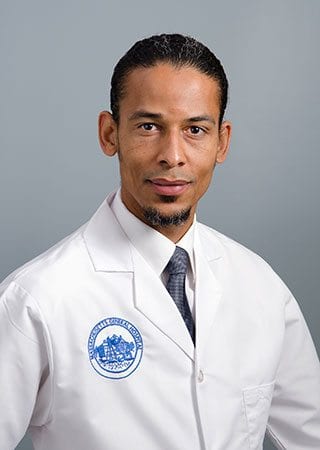Question and Answer on stroke with Dr. Thabele Leslie-Mazwi
a neurologist at Massachusetts General Hospital


Thabele M. Leslie-Mazwi, M.D.
Neurologist, Critical Care Center
Massachusetts General Hospital
Since mini-strokes, or transient ischemic attacks, resolve on their own, is it necessary to seek medical care?
It is absolutely essential to seek medical attention as a matter of urgency. TIAs should be viewed as a warning that something potentially much more serious is about to happen, and seeking medical attention allows protective treatment to be initiated to prevent a much bigger stroke from occurring.
Why is excessive weight linked to stroke?
Excessive weight is a risk factor for high blood pressure, diabetes, obstructive sleep apnea and high cholesterol, all of which increase the likelihood of having a stroke.
If stroke runs in a person’s family, does that mean that he or she will have a stroke?
No, but it does indicate that increased vigilance is needed because the tendency for stroke will be higher than for someone without a family history. Through appropriate primary care the vast majority of strokes are totally preventable. Make sure to tell your doctor about your family history.
Does exposure to second-hand smoke increase the risk of stroke?
If you’re a smoker you double to quadruple your risk of having a stroke. This happens through a variety of mechanisms, including damage to blood vessel linings and thickening of the blood. If you live or work with a smoker be aware that second-hand smoke exposure has been firmly linked to increased cardiovascular risk, especially heart attacks and stroke. For stroke, the risk may be as much as double. Avoiding primary or secondary cigarette smoke exposure is crucial to a healthy lifestyle.
Should people at risk for stroke take an aspirin a day?
Aspirin can be very helpful for patients at risk for stroke by keeping the blood thinned so it flows easily through the vessels. However, no medicine should be taken regularly without consulting your physician first. If you think you might need to be on standing aspirin you should have a discussion with your primary care doctor.
Why do some people recover completely from a stroke while others suffer permanent damage?
Stroke outcomes are heavily dependent on how much brain tissue is affected and what area of the brain is damaged. Patients with either large volumes of brain tissue affected or very important structures damaged are more likely to suffer permanent damage. A crucial component of stroke recovery is adequate rehabilitation, and for all stroke patients this should be pursued to minimize the chance of permanent deficit.
Why is sickle cell anemia linked to stroke?
In sickle cell anemia the abnormal blood cells do not flow properly. They tend to clump, and these clumps can block blood vessels in the brain, leading to strokes. Avoiding circumstances that cause clumping (dehydration and infection, for example) is an important step in preventing strokes in patients with sickle cell disease.
Should a person call 911 if he or she has only one symptom of a stroke?
Yes. Call 911 immediately with any suspicion of stroke. Remember to “Think FAST”— Face, Arm, Speech and Time. Any sudden weakness or loss of function should raise concern for stroke. The main reason people with stroke do not get properly treated is that they get to medical attention too late. Every single minute counts.
Do people with a stroke have a higher incidence of dementia?
Cognitive decline (decreased memory or judgement) related to stroke is usually called vascular dementia or vascular cognitive impairment (to distinguish it from other types of dementia). In the United States, it is the second most common form of dementia after Alzheimer’s disease. People who have had a stroke have a nine times greater risk of dementia than people who have not had a stroke. Vascular dementia is preventable, but only if the underlying vascular disease is recognized and treated early.
Does the consumption of green tea reduce the risk of stroke?
New research suggests that drinking green tea may reduce stroke risk. Green tea consumption can be incorporated as part of healthy lifestyle choices, like diet and exercise. However, there are many factors, like high blood pressure, smoking, diabetes, high cholesterol and obstructive sleep apnea that are very clearly established as causes of stroke. Attention to these will ensure a longer, healthier life, free from not just strokes but a variety of other vascular diseases.







